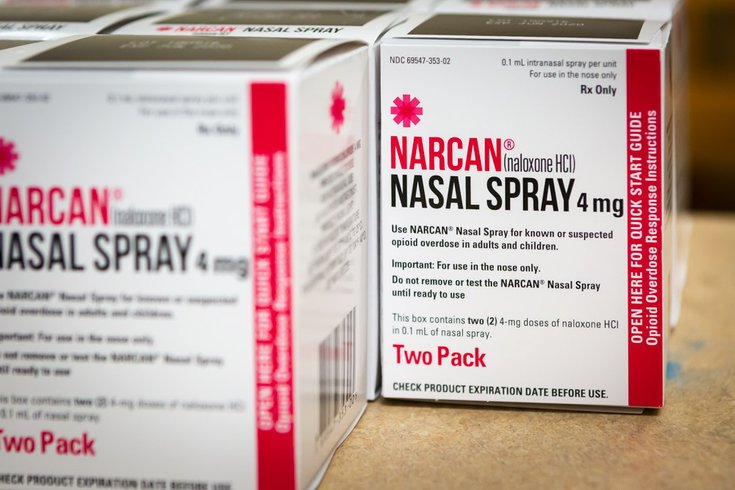
June 08, 2019
 Thom Carroll/PhillyVoice
Thom Carroll/PhillyVoice
Naloxone (Narcan), the anti-overdose drug often used to reverse opioid overdoses.
Naloxone nasal spray, an opioid overdose antidote, is used frequently to reverse potentially fatal overdoses in Philadelphia and across the country. According to a new study, access to Naloxone in the city isn't consistent across communities, and a lack of access seems prevalent in the communities where it's needed most.
Researchers from the University of Illinois at Chicago contacted more than 400 pharmacies in the area during a six-month span in 2017 for the study, published Friday in JAMA.
The goal of the study, the authors wrote, was to find the availability of naloxone in Pennsylvania's largest city, three years after a statewide order allowing pharmacists to give out naloxone without requiring a prescription.
The study found that roughly one in three pharmacies in the Philadelphia area — about 34.2% — had naloxone nasal spray in stock. In general, the spray was far more available at chain pharmacy stores (45.9%) than independent pharmacies (27.8%).
When the researchers looked closer, they noticed trends in the areas where naloxone was (and wasn't) available.
Naloxone was 42% more available in neighborhoods with majority white residents (40.8%) than majority minority neighborhoods (28.8%).
Elsewhere, planning districts with high rates of opioid overdose deaths (31.1%) were 24% less likely to carry naloxone than districts with lower rates of opioid overdose deaths (38.5%).
"Despite the widespread implementation of naloxone access laws and important role of naloxone in preventing potentially fatal opioid overdoses, many barriers to its distribution and use remain," the authors wrote. "Such barriers are particularly important in communities that have been especially affected by the epidemic and that experience high overdose rates, including in Philadelphia."
The authors concluded that the state should strengthen efforts to implement the statewide standing order, especially in communities with high opioid overdose rates.
A new study from Drexel University released this week showed support in Kensington for a dedicated overdose prevention site.
Public health officials recently reported a modest reduction in deaths from 2017 to 2018, but acknowledged more must be done to limit the toll on the community.
Follow Adam & PhillyVoice on Twitter: @adamwhermann | @thePhillyVoice
Like us on Facebook: PhillyVoice
Add Adam's RSS feed to your feed reader
Have a news tip? Let us know.